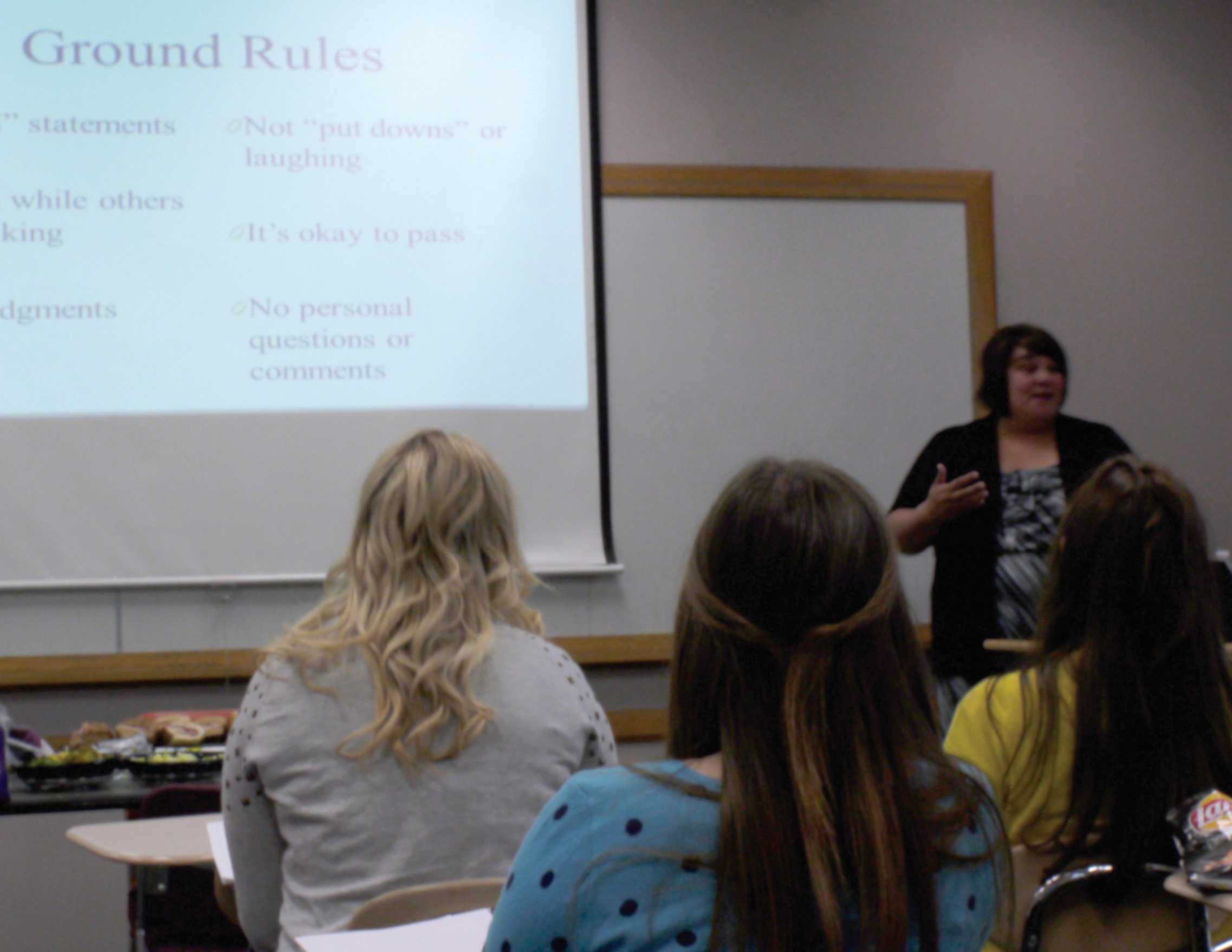Anti-sexual violence training program in the works
A network of anti-violence programs are in the works at USU. Funded by a grant from the U.S. Department of Justice Office on Violence Against Women, these programs are designed to raise awareness and prevent sexual and domestic violence.
USU Can Stop Abuse, a Canvas-hosted anti-violence training program, is designed to educate students about dating violence, domestic violence, sexual assault and stalking.
“We are hoping the entire training will be completed by the end of the semester,” said Jamie Huber, the grant coordinator and the coordinator of The Center for Women and Gender. “We’ll do some focus group testing with it in the spring. The hope is that it will go live in fall of 2014.”
Each of the four topics are addressed with a video to demonstrate a potentially dangerous scenario. Beneath the video is information, statistics, infographics and the possible health and legal outcomes of each form of violence, Huber said.
To supplement the online training, the grant also funds a peer education program, housed by the Sexual Assault and Anti-Violence Information office, or SAAVI. This program is designed to address aspects of dating violence, domestic violence, stalking and sexual assault, but by way of students educating other students giving presentations in classrooms and for clubs and other organizations, Huber said.
“So, the idea is that once (the online training) gets up and running, students should have a baseline knowledge and, with the peer education program, then get an opportunity to attend a presentation by a peer educator so they can start delving into some of the issues a little more deeply,” Huber said.
Jenny Erazo, the SAAVI program coordinator, began training the 15 peer educators last week.
“Peer-to-peer education has shown to be a really powerful way to share a message – to educate people,” Erazo said. “To have students go in and say, ‘These are the issues and they are important,’ is a more powerful way to get that message across.”
According to Huber, the current attitudes of society regarding these topics is what makes this such an issue.
“The way media and culture present romance in general in the ideals that are set up for us are kind of unhealthy,” Huber said. “Like, the guy who never gives up and eventually wins the girl in the end; in reality, that’s stalking. Maybe if it’s Brad Pitt on TV, it’s a little more endearing. And grabbing someone who is angry at you and passionately kissing them without permission or consent, someone might not realize that it isn’t ok and it isn’t healthy.”
“We are hoping that the online training and the peer education program can help students identify aspects of that and, in end the end, help them to have healthier relationships,” she said.
Erazo said these programs will also address the idea of “rape culture” – the social tolerance of sexual assault due to norms – that may sometimes keep victims of such crimes from seeking services or pursuing legal action.
“We have the right to go and be where we want to be and be safe,” she said. “It’s the perpetrators and the choice they made that are at fault. It’s like a man wearing a suit and tie with a wallet full of money walking into a bar, getting mugged and telling him, ‘Well, you were asking for it. You shouldn’t have worn that suit.’ It’s ridiculous. It is absolutely never your fault.”
Erazo and Huber both said making sure students are aware of the resources available to them, through the university and other organizations, is a priority for both programs. The online training site has a page listing campus, local, state and national resources available.
The peer educators will refer students to SAAVI, where Erazo said she acts as an advocate; she can provide therapy or connect students with Counseling and Psychological Services on campus, as well as assist a student in taking legal action if they wish to do so. The purpose of SAAVI is to provide students with options, she said.
“There needs to be a place where students can go to get information,” Erazo said. “We are here to provide information and support and help in whatever way we can. It’s important to have this office and these resources here because it does happen, and there needs to be a safe place for students to come.”
Andrea Kearns, a junior majoring in social work, said she applied to be a peer educator to spread awareness of relationship violence on campus.
“I think it’s undereducated at our school,” Kearns said. “It’s important for students who might be going through situations like this know about their resources.”
-manda.perkins@hotmail.com

